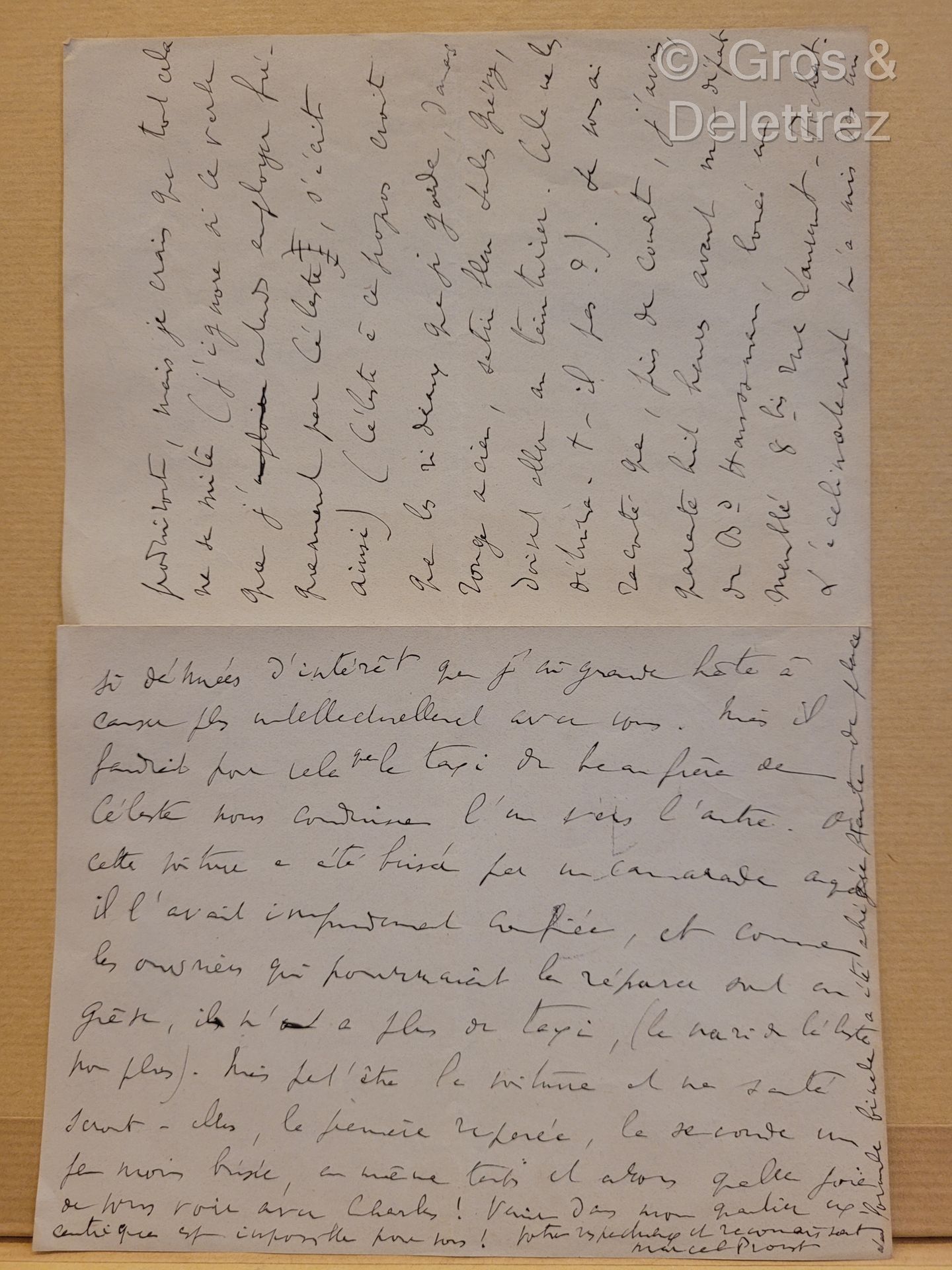Description
Marcel PROUST (1871-1922) Writer. Autograph letter signed addressed at the end of June 1919 to Madame Catusse, wife of the prefect Anatole Catusse who was a great friend of his mother before becoming the confidant and adviser of the writer for the problems of everyday life, as in this letter where he talks about the moving of his apartment on the boulevard Haussmann and the sale of a certain number of family furniture that surrounded it, in order to move to the rue Laurent-Pichat, which he will also leave a few months later. 8 pages in-8 on two double sheets of watermarked paper "Conqueror London".
43
Marcel PROUST (1871-1922) Writer. Autograph letter signed addressed at the end of June 1919 to Madame Catusse, wife of the prefect Anatole Catusse who was a great friend of his mother before becoming the confidant and adviser of the writer for the problems of everyday life, as in this letter where he talks about the moving of his apartment on the boulevard Haussmann and the sale of a certain number of family furniture that surrounded it, in order to move to the rue Laurent-Pichat, which he will also leave a few months later. 8 pages in-8 on two double sheets of watermarked paper "Conqueror London".
You may also like
